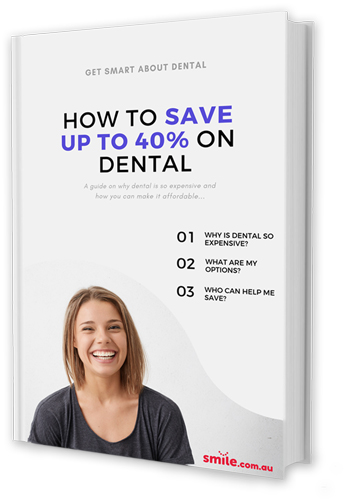Diabetes & Dental Care
Reviewed June 2024 by Our Content Experts
Diabetes affects many Australians each year. If you have been diagnosed with diabetes, you may know that the disease can cause problems with your eyes, nerves, kidneys and heart as well as other parts of your body. Diabetes can lower your resistance to infection and can slow the healing process.
Oral Health Problems and Diabetes
The most common oral health problems associated with diabetes are:
- Tooth decay
- Periodontal (gum) disease
- Salivary gland dysfunction
- Fungal infections
- Lichen planus and lichenoid reactions (inflammatory skin disease)
- Infection and delayed healing
- Taste impairment
It's important to keep your medical records up-to-date.
Let participating dentists know the following:
- If you have been diagnosed with diabetes
- If the disease is under control
- If there has been any other change in your medical history
- The names of all prescription and over-the-counter drugs you are taking
Diet and Tooth Decay
When diabetes is not controlled properly, high glucose levels in saliva may help bacteria thrive. Brushing twice a day with fluoride toothpaste and cleaning once a day between your teeth with floss or an interdental cleaner helps remove decay-causing plaque.
Plaque that is not removed can eventually harden (calcify) into calculus or tartar. When tartar collects above the gumline it becomes more difficult to thoroughly brush and clean between teeth. This can create conditions that lead to chronic inflammation and infection in the mouth.
Because diabetes reduces the body's resistance to infection, the gums are among the tissues likely to be affected. Periodontal diseases are infections of the gum and bone that hold your teeth in place.
Periodontal disease often is linked to the control of diabetes. For example, patients with inadequate blood sugar control appear to develop periodontal disease more often and more severely, and they lose more teeth than do people who have control of their diabetes.
See our approved dentists immediately if you notice any of the following:
- Gums that bleed easily
- Red, swollen or tender gums
- Gums that have pulled away from the teeth
- Pus between the teeth and gums when the gums are pressed
- Persistent bad breath or bad taste in the mouth
- Permanent teeth that are loose or separating
- Any change in the way your teeth fit together when you bite
- Any change in the fit of partial dentures
Fungal Infections
Bacteria, viruses and fungi occur naturally in the mouth. The body's natural defense and regular oral hygiene generally keep them in check. However, under some situations, they may proliferate and impede or defeat the body's defenses.
Oral candidiasis, a fungal infection in the mouth, appears to occur more frequently among people with diabetes including those who wear dentures. If you smoke, have high blood glucose levels or often are required to take antibiotics, you are more likely to have a problem with fungal infections in your mouth.
Diminished salivary flow and an increase in salivary glucose levels create an attractive environment for fungal infections such as thrush. Thrush produces white (or sometimes red) patches in the mouth that may be sore or may become ulcers. It may attack the tongue causing a painful, burning sensation. It also can cause difficulty in swallowing and compromise your ability to taste.
Our approved dentists may prescribe antifungal medications to treat this condition. Good oral hygiene is critical.
Caring For Your Teeth
Preventive oral health care including professional cleanings at the dental practice is important if you are to control the progression of periodontal disease and other oral health problems. Regular dental check ups and periodontal screenings are important for evaluating overall dental health and for treating dental problems in their early stages. Our participating dentists may recommend more frequent evaluations and preventive procedures such as tooth cleaning to maintain good oral health.
Choose oral care products that display the Australian Dental Association seal of acceptance, an important symbol of a dental product's safety and effectiveness when the products are used as directed.
In addition to brushing twice a day and flossing or using an interdental cleaner once a day, a participating dentist may suggest using an antimicrobial mouthrinse or toothpaste to control gingivitis.
Watch for signs and symptoms of oral disease and contact a participating dentist immediately when a problem arises. Practice good oral hygiene at home, follow your physician's instructions regarding diet and medications, and schedule regular dental check ups to maintain a healthy smile.

